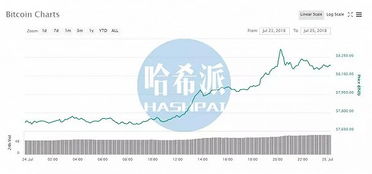Title: Exploring Bitcoin Asset Management Platforms
Introduction to Bitcoin Asset Management Platforms
Bitcoin asset management platforms serve as intermediaries between investors and the volatile cryptocurrency market. These platforms offer various services, including investment advice, portfolio management, and sometimes even automated trading. In this comprehensive guide, we'll delve into the key aspects of Bitcoin asset management platforms, including their functions, features, risks, and considerations for investors.
Understanding Bitcoin Asset Management Platforms
Bitcoin asset management platforms operate similarly to traditional investment management firms but focus specifically on cryptocurrencies, primarily Bitcoin. They provide investors with tools and expertise to navigate the complexities of the digital currency market. These platforms typically offer:
1.
Portfolio Management
: They help investors construct and manage diversified portfolios of Bitcoin and other cryptocurrencies.2.
Risk Management
: They employ strategies to mitigate risks associated with cryptocurrency investing, such as market volatility and security threats.3.
Research and Analysis
: They offer insights, market analysis, and research reports to aid investors in making informed decisions.4.
Trading Services
: Some platforms facilitate automated trading or offer trading signals to execute trades efficiently.5.
Security Measures
: Robust security measures are implemented to safeguard investors' funds and personal information from cyber threats.Key Considerations for Investors
Before selecting a Bitcoin asset management platform, investors should consider several factors to ensure the safety and effectiveness of their investments:
1.
Reputation and Track Record
: Choose platforms with a proven track record and positive reputation in the cryptocurrency industry. Look for reviews, testimonials, and any past performance data available.2.
Regulatory Compliance
: Ensure that the platform complies with relevant regulations and has necessary licenses to operate legally in your jurisdiction. Regulatory compliance enhances transparency and investor protection.3.
Security Measures
: Assess the platform's security measures, such as multifactor authentication, cold storage for funds, and encryption protocols. Security breaches can result in significant financial losses.4.
Fees and Charges
: Understand the fee structure of the platform, including management fees, performance fees, and any additional charges. Compare fee levels with competitors to ensure they are reasonable and competitive.5.
Customer Support
: Evaluate the quality of customer support offered by the platform. Prompt and responsive support can be crucial, especially during times of technical issues or accountrelated inquiries.6.
Investment Strategies
: Understand the investment strategies employed by the platform and ensure they align with your risk tolerance and investment objectives. Some platforms may focus on longterm HODLing, while others may engage in more active trading.7.
Transparency and Reporting
: Look for platforms that provide transparent reporting of portfolio performance, holdings, and transactions. Transparency builds trust and enables investors to monitor their investments effectively.Risks Associated with Bitcoin Asset Management Platforms
While Bitcoin asset management platforms offer potential benefits, investors should be aware of the following risks:
1.
Market Volatility
: Cryptocurrency markets are highly volatile, and investments can experience significant fluctuations in value. Investors should be prepared for the possibility of substantial gains or losses.2.
Security Risks
: Despite advancements in security measures, cryptocurrency platforms remain susceptible to hacking, fraud, and cyber attacks. Investors' funds may be at risk if security measures are compromised.3.
Regulatory Uncertainty
: Regulatory developments in the cryptocurrency space are ongoing and can impact the operations of asset management platforms. Changes in regulations may affect the legality, accessibility, or profitability of these platforms.4.
Counterparty Risk
: Investors entrust their funds to the platform, exposing them to counterparty risk. If the platform experiences financial difficulties or insolvency, investors may lose their investments.
5.
Lack of Investor Protection
: Unlike traditional financial markets, cryptocurrency markets often lack investor protection mechanisms such as deposit insurance or regulatory oversight. Investors should carefully assess the risks before committing funds to these platforms.Conclusion
Bitcoin asset management platforms offer investors a convenient way to gain exposure to the cryptocurrency market while leveraging professional expertise and tools. However, investors should conduct thorough due diligence and consider the risks involved before selecting a platform. By choosing reputable and transparent platforms and adopting sound investment strategies, investors can navigate the dynamic world of cryptocurrency investing more effectively.
版权声明
本文仅代表作者观点,不代表百度立场。
本文系作者授权百度百家发表,未经许可,不得转载。














评论